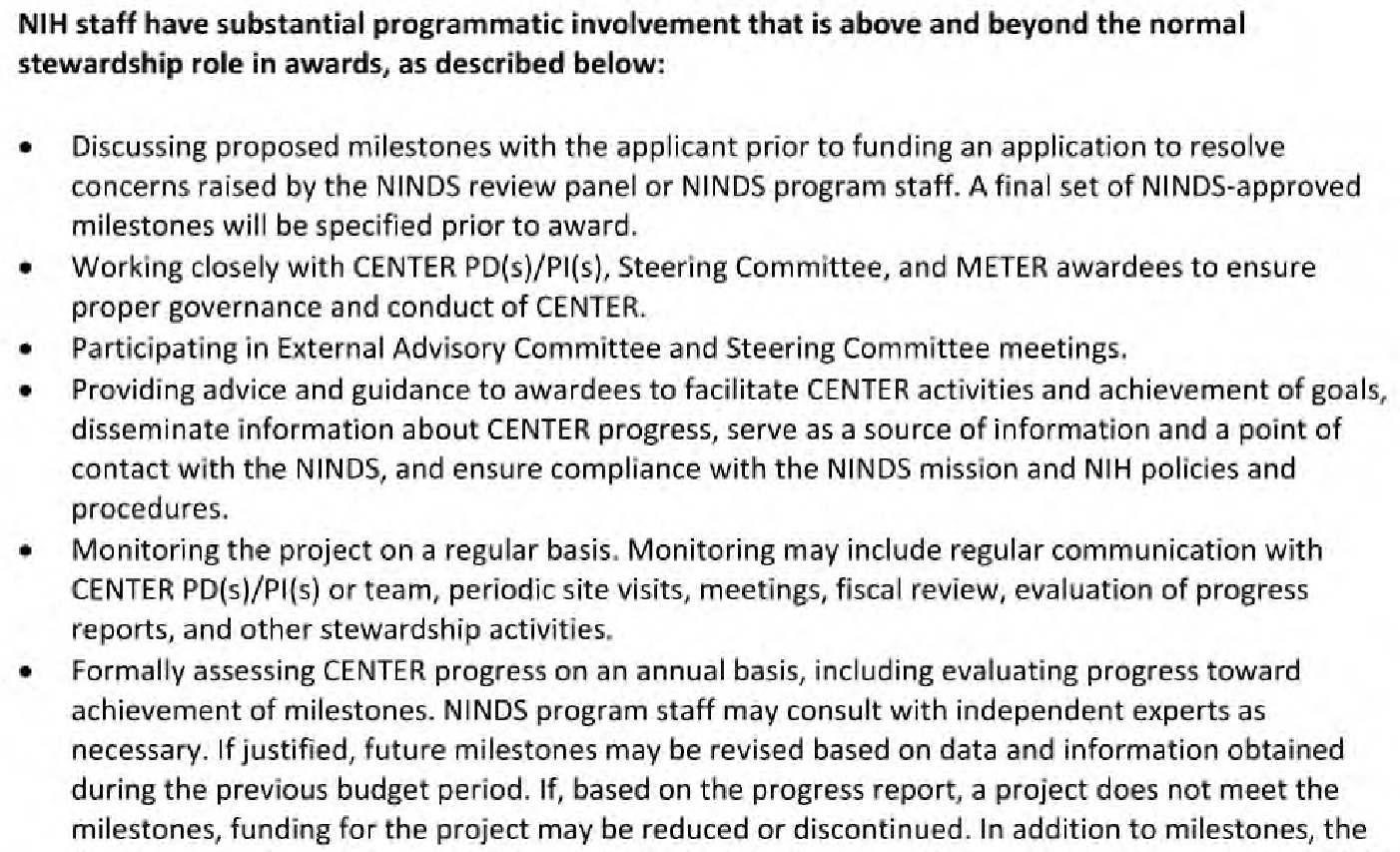A document request reveals NIH’s approach to the law
"The spirit of the FOIA"
After six months of FOIA-ing NIH about a project predicated on transparency, one quote from the science funder’s FOIA office stands out:
Requesters who ask for grant applications/materials usually want to receive only material that will help in understanding the process that led to the awards, or to improve their own methods of drafting grant applications. Requesters usually do not want material that applicants believe would harm them if released. We have found that the spirit of the FOIA can be enhanced through a spirit of cooperation1 among requesters of materials and those who submitted the materials.
[Emphasis added.]
I’ve written about the subject of this FOIA request extensively. It’s called Community for Rigor, a “grassroots” project to produce educational materials for researchers on scientific rigor. I decided to FOIA Community for Rigor after a particularly terse response from them in February that went like this: “All the information you’re requesting is part of of our internal planning process. If you would like to stay up to date on our progress, please make sure to sign up to our mailing list.”
As I stated to NIH in the request, the FOIA had a scientific purpose. This purpose is the same as the purpose of my emails to Community for Rigor: a small number of professors funded clearly don’t know much about rigor. They, I suspect, are like the schools they work for and resist learning about or teaching rigor for financial reasons. The request:
According to NIH research (https://doi.org/10.7554/eLife.55915), higher education institutions have resisted teaching rigorous research practices that may prevent future funding opportunities. “Grassroots Rigor” [Community for Rigor, or C4R] was intended to produce training materials on rigorous research practices. The scientific question this request is intended to answer is whether or not the higher education institutions funded under this grant continued to resist teaching these practices. (Date Range for Record Search: From 08/08/2023 To 02/09/2025)
At minimum, the search needed to include the email accounts of the three main NIH officials in charge of the project: Walter Koroshetz, Shai Silberberg, and Devon Crawford.
The admonishment about “harm” appears in the FOIA office’s final response letter along with a small cache of emails that is obviously incomplete. Its incompleteness will hopefully become clear shortly. To summarize, the emails cover a single topic, a request to carry over an unobligated balance due to slowness in initial hiring. Nonetheless, work was underway and the grantees were able to complete 4 out of 5 milestones. (All of the documents are linked below.)
The reason it’s notable that two of the top NIH officials don’t appear in the documents is that NIH promised “substantial programmatic involvement that is above and beyond the normal stewardship in awards” on Community for Rigor. They were to have an “ongoing role” including at least “monthly meetings” with grantees, an annual conference with Shai Silberberg as keynote speaker, “regular communication,” establishing a steering committee and “providing advice and guidance” throughout. According to the FOIA response, none of this “substantial programmatic involvement” generated a single email in a year and a half.
The documents show that communication was conducted by email, and specific messages were referenced but don’t appear.
According to Konrad Kording, the central grantee on the project, Shai Silberberg lobbied the institute for 20 years to get Community for Rigor funded. Silberberg has been working on its design for the last five. Yet the documents don’t include him other than to say he is a program director. This means that, according to the FOIA response, Silberberg never sent or received an email on the project he had spent two decades building, and on which he had a self-imposed “substantial” role. This is despite common sense that suggests it’s simply not so, and despite the fact that I sent him four emails to make sure my feedback on the project was FOIA-able.
My correspondence with NINDS director Walter Koroshetz and program officer Devon Crawford, published in June, also doesn’t appear.
In a separate, but related matter, there are no emails to or from any individual professors (grantees) even though NIH spent months requesting objections from them. The large number of grantees was cited as the reason my request was designated “complex” and would take extra time to complete.
NIH’s justification for omitting emails involving these professors in charge of producing educational materials was as follows:
“...we asked the grantee for advice concerning patent rights and other confidential commercial or financial information and the material that we are furnishing reflects that advice.”
This single grantee seems to have served as both subject of the request and subject matter expert, and asking their advice took over two months. This person also exempted the many others who presumably weren’t planning to patent their materials, as well as discussions that weren’t about future patents. This advice meant that emails were left out entirely, rather than partially redacted as NIH requires. NIH discourages applicants from including any proprietary information in their records, particularly without disclosure. If these submitters don’t heed this warning, “a significant substantive justification will be required to withhold the information if requested under FOIA.” So we don’t know what the professors discussed with NIH but we can speculate that it was always 1. substantial, and 2. financially volatile.
This is all to say that the FOIA response is very likely incomplete. Either NIH did not participate in the project they said they were participating in, or emails were withheld without justification. The professors’ justification sounds coincidental since financial gain (Exemption 4) was the excuse available.
The only other justification was the one above about “harm” and the “spirit of the FOIA.”
I don’t have to explain why harm is neither the spirit nor the reality of the Freedom of Information Act, nor why personal judgments and personal interest in harm are not good justification for ignoring it, or indeed laws in general. The law applies, according to NIH, “regardless of the intended use of the information.”
On improving the “drafting of grant applications,” NIH rightfully tries to prevent grantees from FOIA-ing their way to more grants.
More importantly, the wider concept of “harm” includes the more narrow “reputational harm,” which is the most plausible reason for NIH and grantees’ evasiveness. This vague language that the FOIA office used throughout always favored NIH and non-transparency. “Cooperation” in the “spirit” of the law with those who may deserve, potentially egregious, reputational harm is at least noxious if not wholly corrupt.
FOIA request
Correspondence with NIH FOIA office
Response document (email cache) and official letter
Addendum
As in the past, the subjects of this post are not “bad apples.” They’re responding to threats to their role in science that are often existential (e.g. publish-or-perish). This site is about the impossibility of self-governance in science. By that I mean that researchers share the same interests and will seek those interests over self-governance and self-correction. Community for Rigor is only the apotheosis of this idea of self-governance and, predictably, when they need to self-govern they simply don’t. Independent checks are necessary. All of this is no more complicated than that.
Responses
I requested and did not receive comments from any of the subjects of this post. I also emailed the FOIA office two weeks prior, notifying them that I would be writing on this subject in a few weeks and asking if there was a mistake in the FOIA response. They did not reply. This space will be updated with future comments and corrections.
The source of “spirit of cooperation” may have been a directive from the Obama administration for FOIA offices to work with requesters in the spirit of cooperation, which I would have appreciated.



If you haven’t read it, I’d strongly recommend Nicholson Baker’s book “Baseless” which is an extended meditation on this subject.